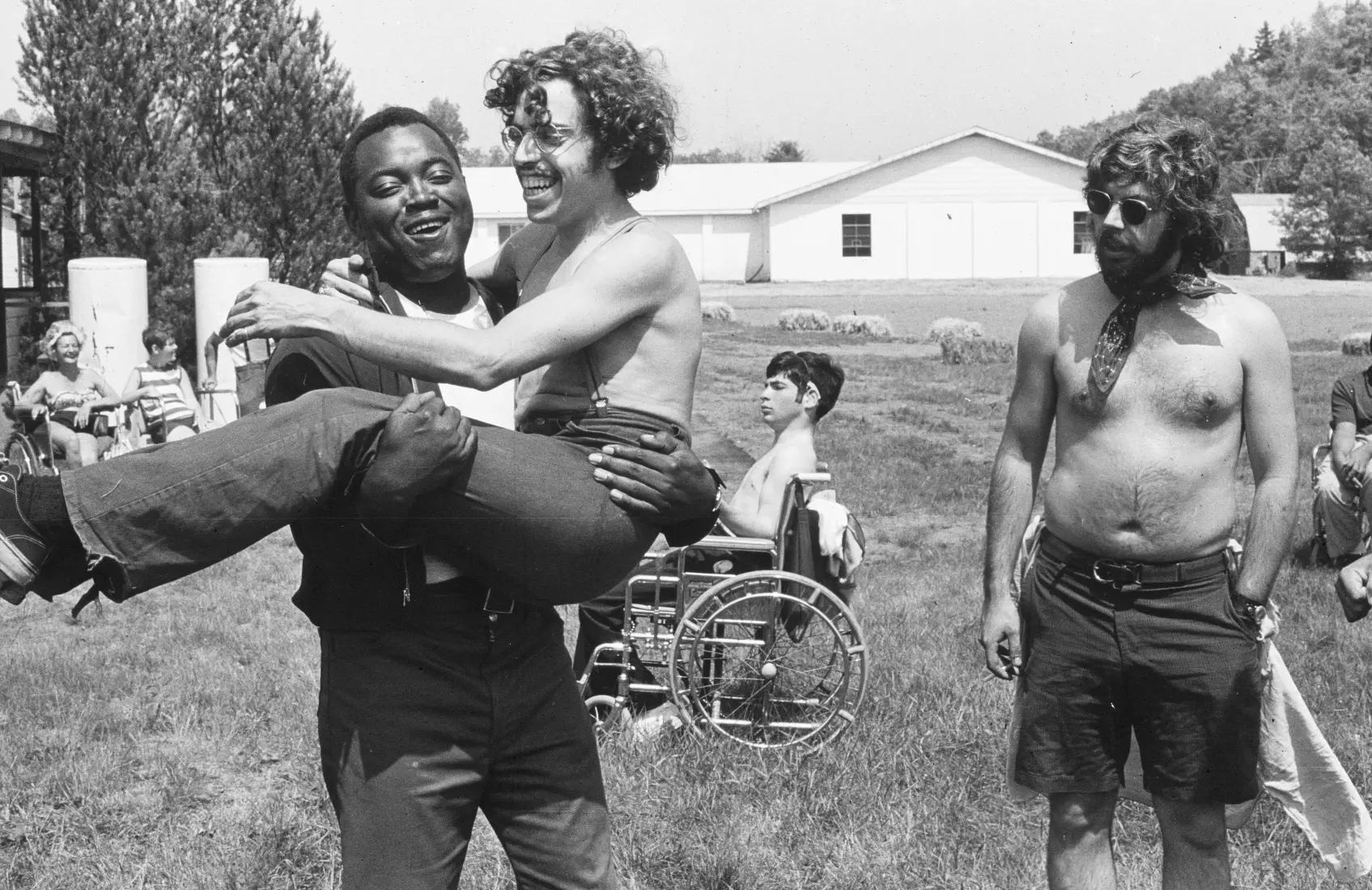Netflix's Crip Camp Will Open Your Eyes and Your Heart
-
 An image from Crip Camp: A Disability Revolution. (Photo: Steve Honigsbaum/Netflix)
An image from Crip Camp: A Disability Revolution. (Photo: Steve Honigsbaum/Netflix)From executive producers Barack and Michelle Obama, the new Netflix documentary Crip Camp: A Disability Revolution spotlights the fight for the civil rights of the disabled in America, and celebrates the heroism of American activism. Beginning in the early 70s at a summer camp for disabled teens, we're given a decades-spanning look at several of the campers' personal lives and their participation in the movement to end discrimination against people with disabilities.
Camp Jened was founded in upstate New York in the post-sexual revolution years. The camp provided its participants with an accessible lifestyle, free from the biases and restrictions of the outside world, and as a result, its attendees were driven to fight for the equality of disabled people in America. Directed by Nicole Newnham and Jim LeBrecht, Crip Camp celebrates Camp Jened and a struggle for civil rights that has rarely been depicted on screen.
At the epicenter of the film is a person you may not have heard of but won't soon forget: activist Judith Heumann. Both in spirit and in action, she is a vital agent of change and a voice for the institutionally voiceless during a time of massive cultural shifts. Through archival footage and interviews, Heumann emerges as a primary player in the battle for disabled rights. We see the rise of Disabled In Action, the organization she founded to organize and demonstrate against obstructions to disabled persons participating in what others consider everyday life. The climax of the film depicts the 504 Sit-in, where Heumann led the longest-ever U.S. sit-in in a federal building in order to force the government to enact the first federal protections for those with disabilities.
Perhaps the most moving moment — in a film that's full of them — is Heumann's mid-sit-in testimony to legislators who propose the unjust compromise of separate but equal considerations. "I can tell you that every time you raise issues of separate but equal, the outrage of disabled individuals across this country — it is going to continue, it is going to be ignited. We will accept no more discussion of segregation," she affirms, before dressing down the bureaucrat who condescendingly feigns acknowledgement. It's as powerful and rousingly righteous a moment as any depicted in an Aaron Sorkin production.
What feels most revolutionary about Crip Camp is the spirit of active involvement captured by the cameras. It's not just that those involved are finally getting to tell their story, it's that they're doing so as they always have: on their own terms and without reservation, all while reminding us that they have always been an essential part of the narrative of American progress.
Seldom have movies or TV shows depicted the aesthetics of the post-sexual revolution 70s in quite the same way that Newnhan and LeBrecht do in Crip Camp. The campground sequences play out like teen coming-of-age stories: the campers giggle about hooking up and the spread of crabs at the camp, but they also tell stories of fallling in love. The specificity of their condition iturns these scenes into something we've seldom seen before.
Most importantly, Crip Camp presents an environment that allowed a gifted leader like Heumann to thrive. (She went on to serve in positions under both the Clinton and Obama administrations.) The film positions Camp Jened as a launching ground for the beginning of the movement, and we feel that both in the modern-day interviews with campers, but also in the archival footage. Crip Camp leaves the viewer with a sobering reminder that the larger story of disabled persons has largely been excluded from the narrative of post-60s civil rights in America. And that heroes like Judy Heumann have yet to receive the recognition they deserve.
Crip Camp: A Disability Revolution drops on Netflix today.
Chris Feil is a freelancer writer and co-host of the This Had Oscar Buzz podcast. His previous work can be found at Vulture, Vice, Paste, and The Film Experience. Follow him @chrisvfeil on Twitter.
TOPICS: Netflix, Crip Camp, Barack Obama, Jim LeBrecht, Judith Heumann, Michelle Obama, Nicole Newnham, Documentaries
- Promising start that didn’t last: What went wrong for Giorgia and Giovanni on Love Is Blind: Italy
- Hyoni and Alessandro’s journey inside the pods on Love Is Blind: Italy
- “Misery incarnate”: Giorgia speaks out about Giovanni at Love Is Blind: Italy reunion
- How did Gergana and Parmi form a strong connection early in Love Is Blind: Italy? Relationship details explored